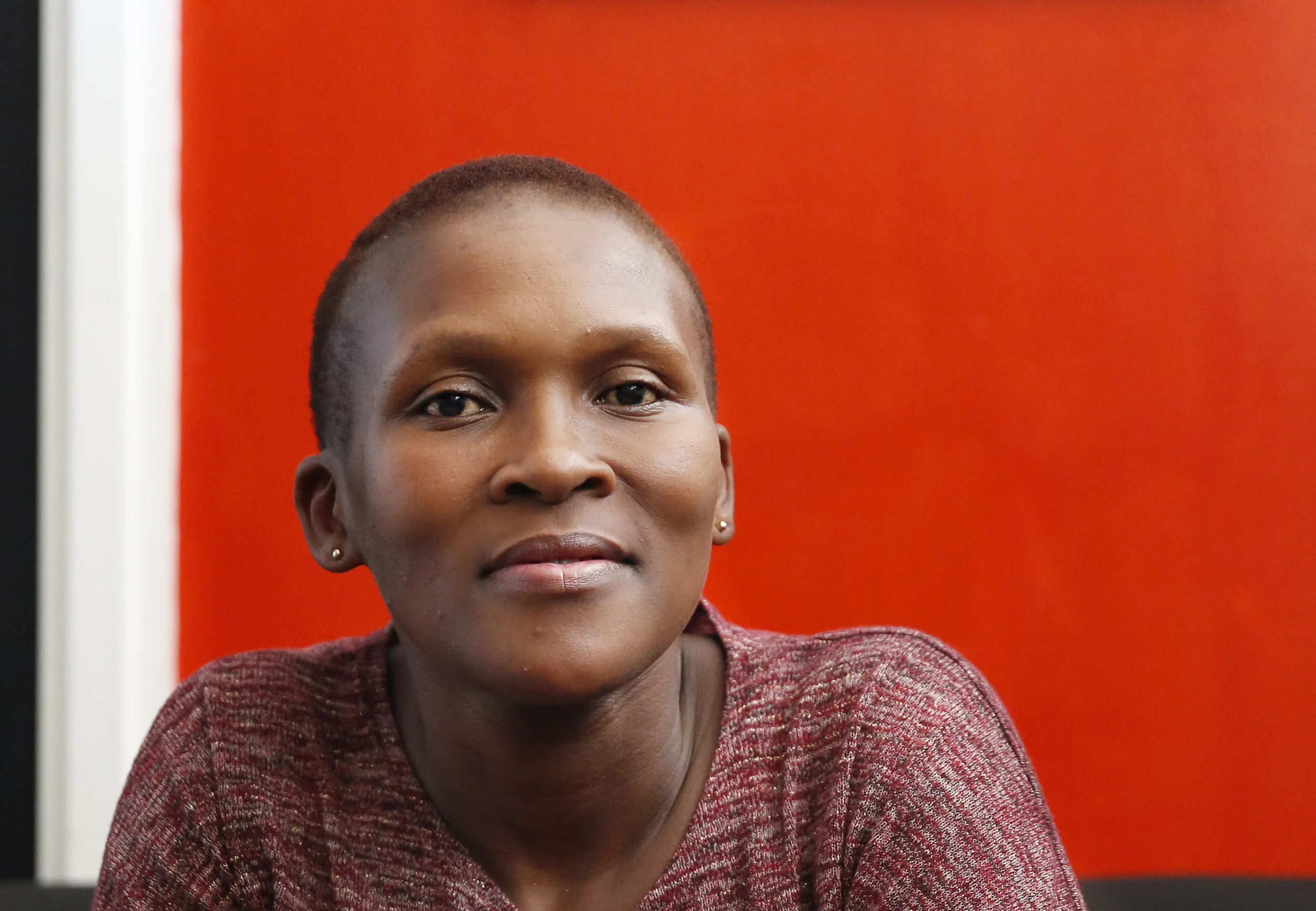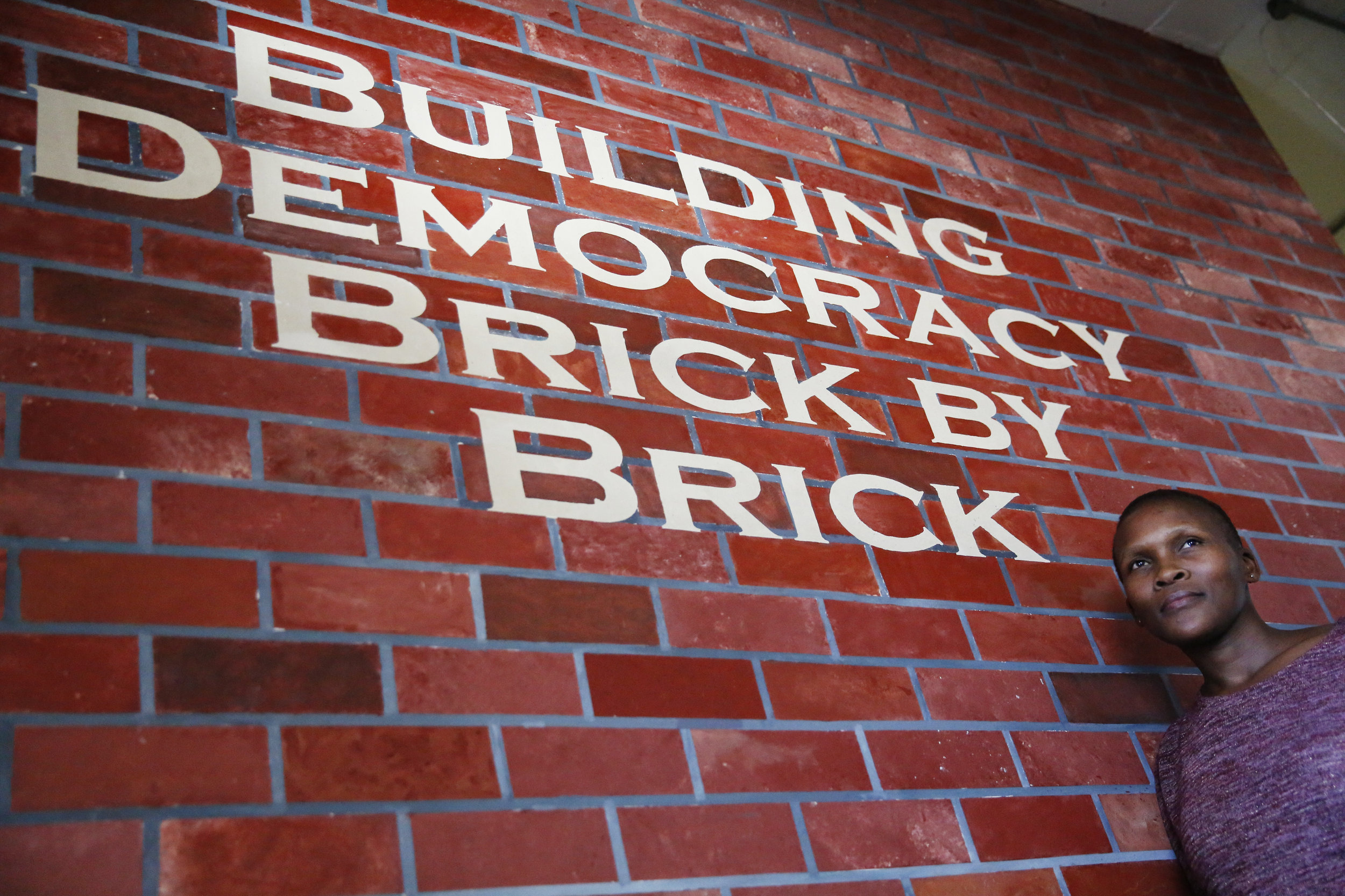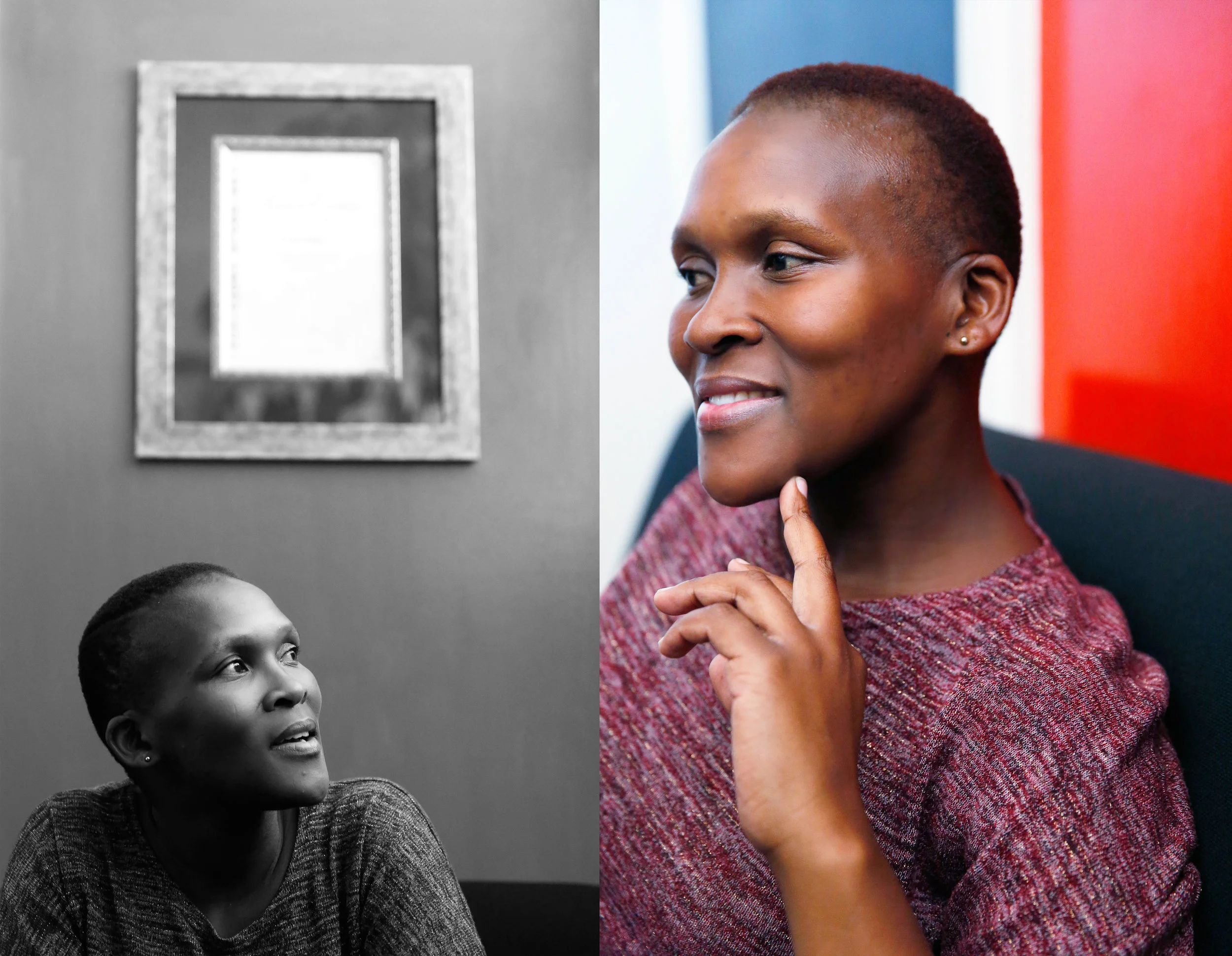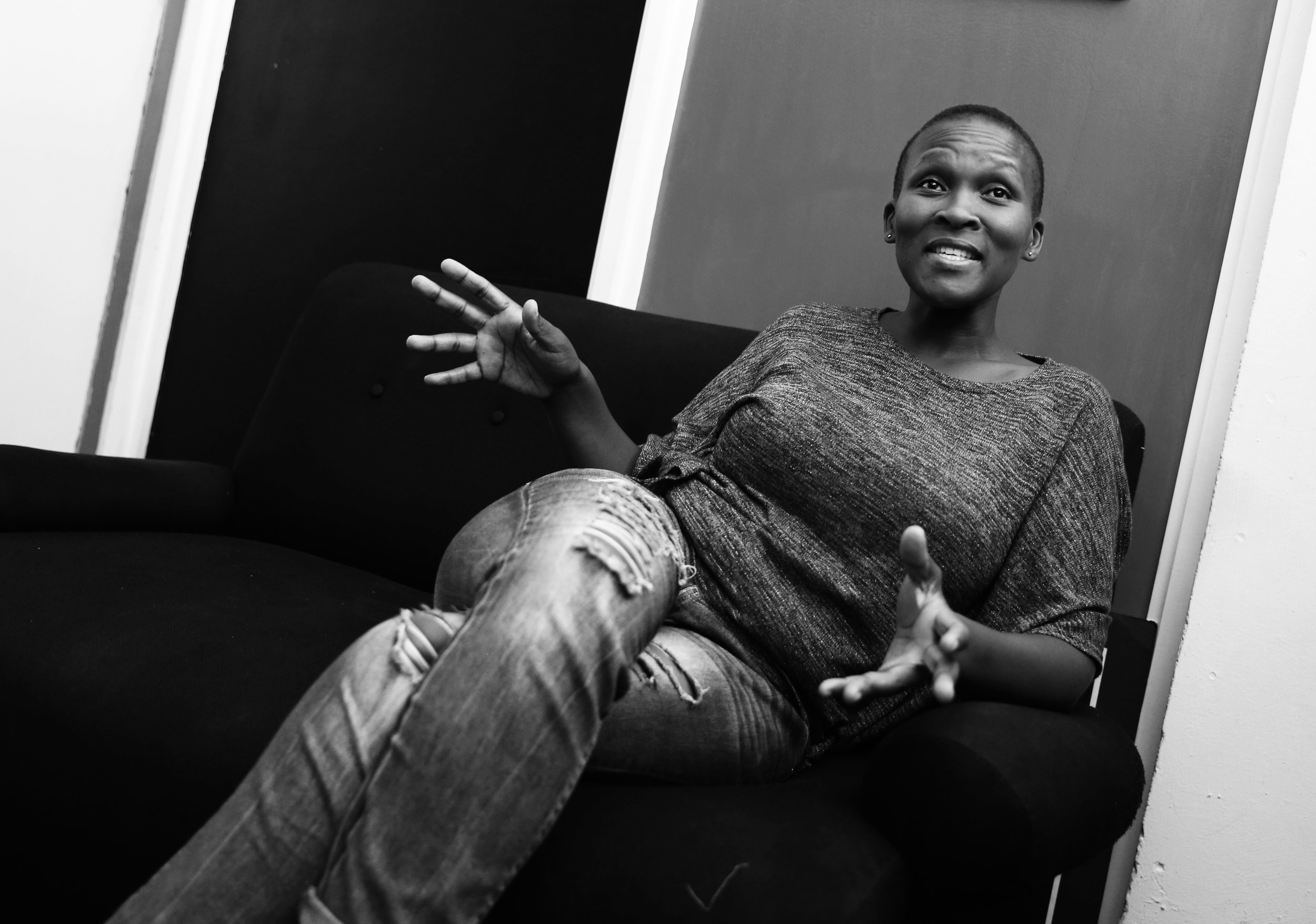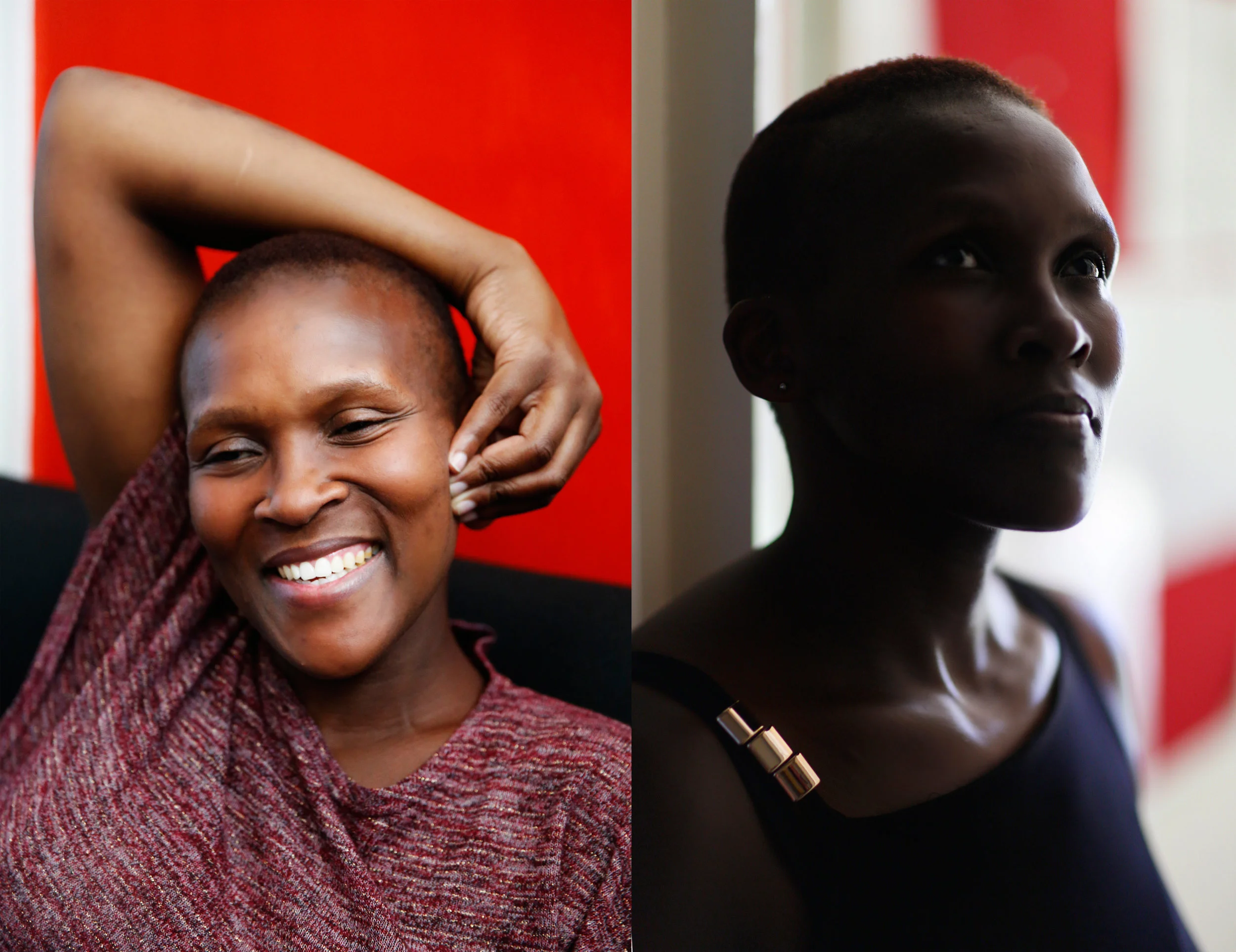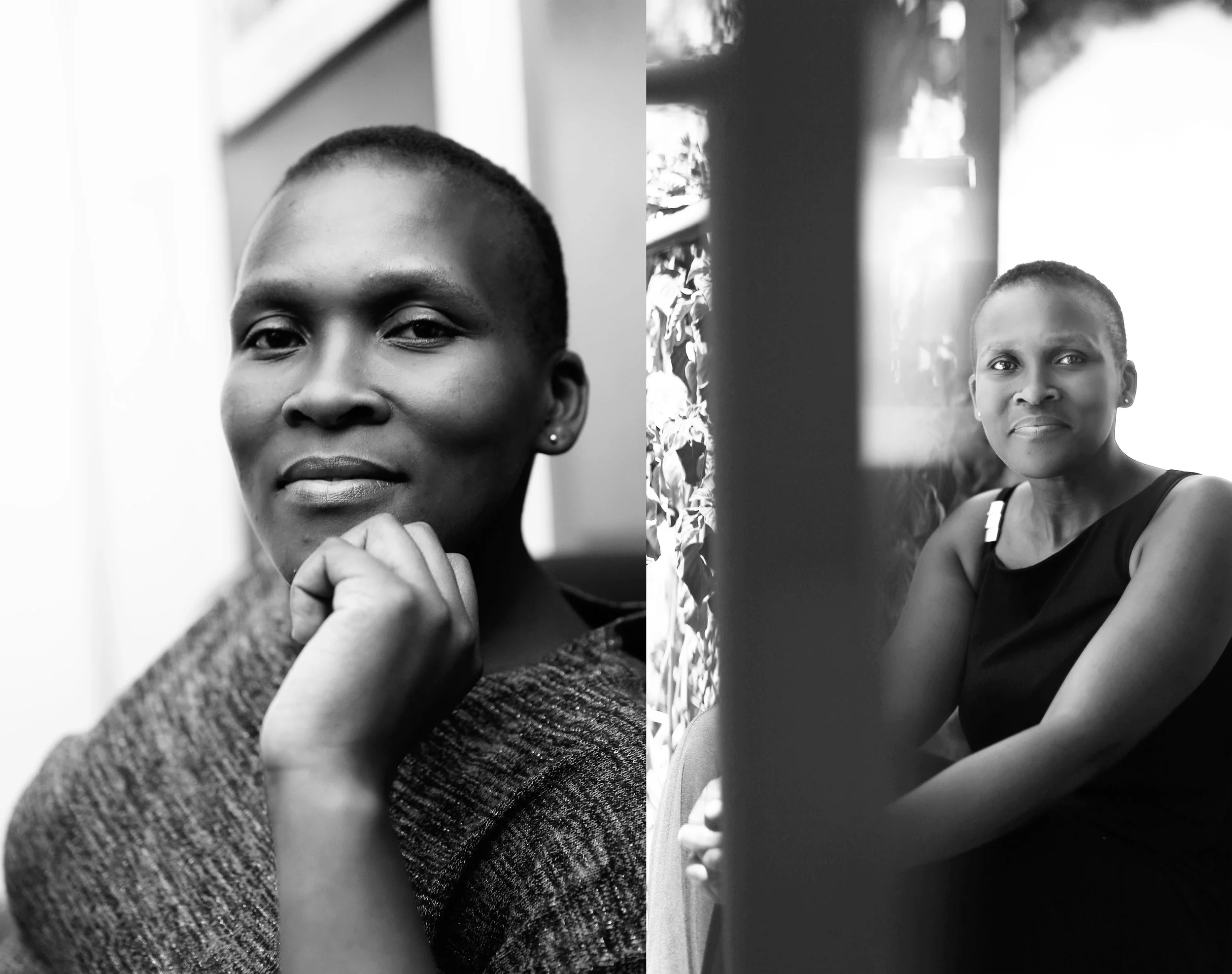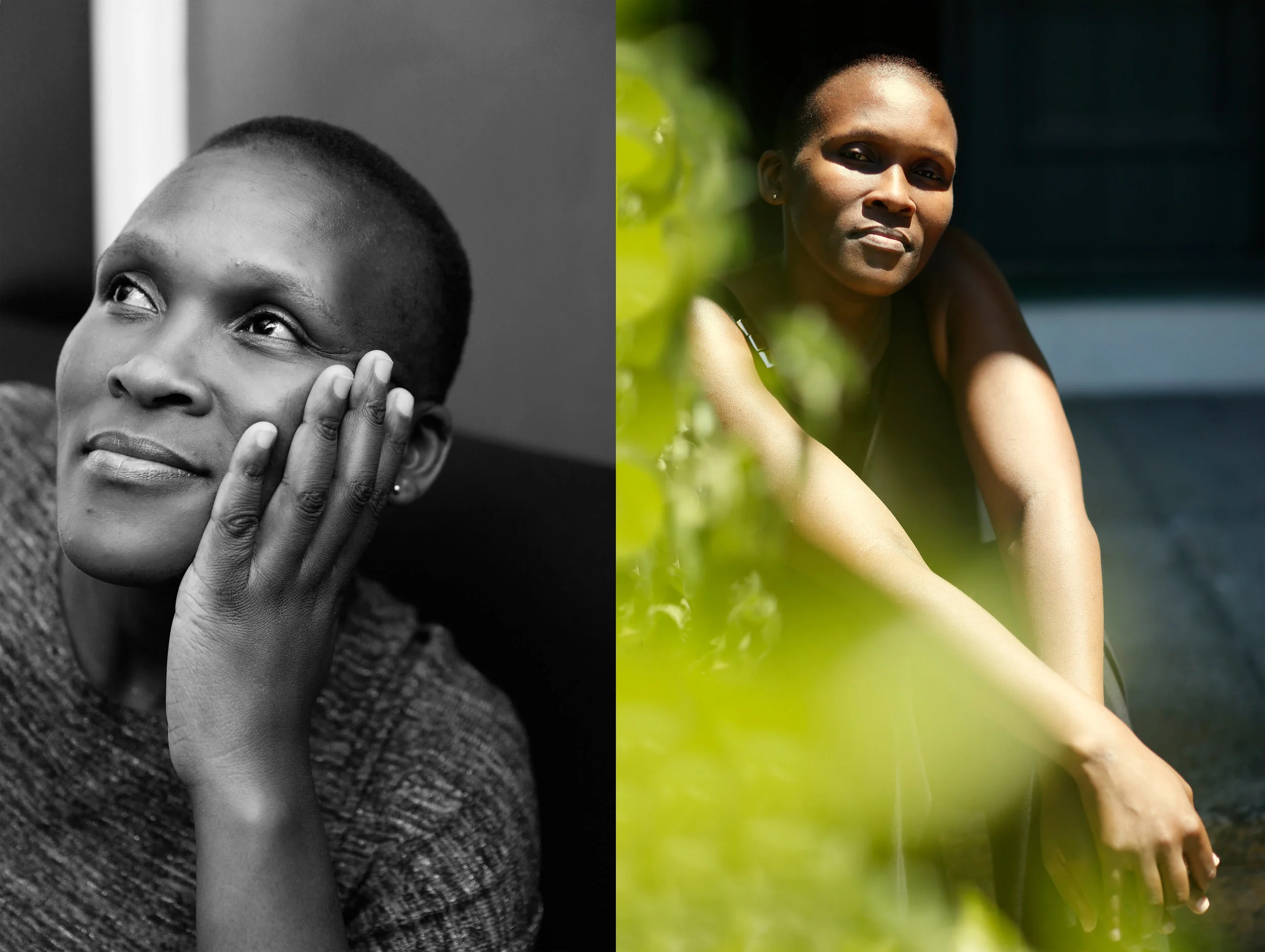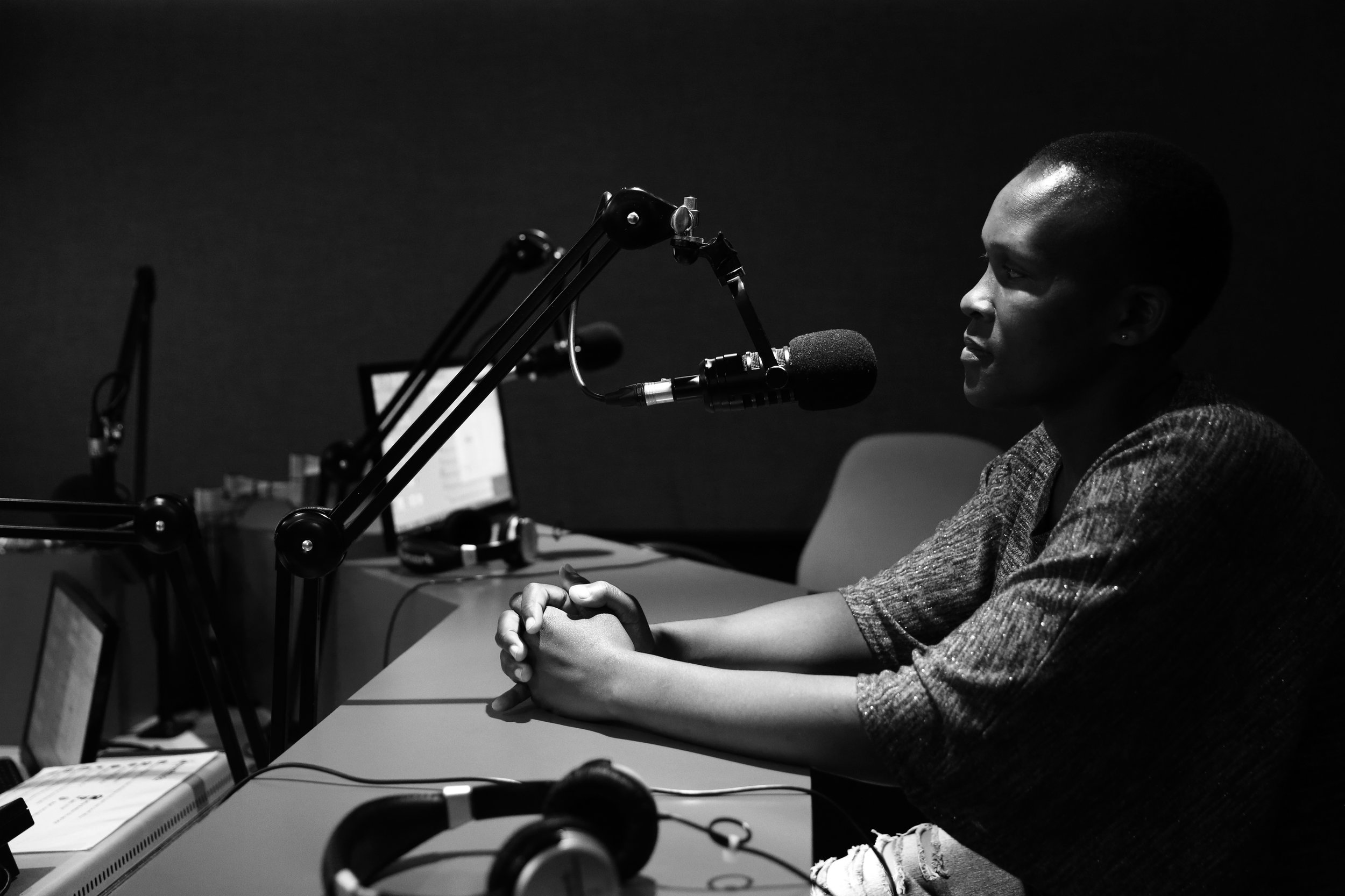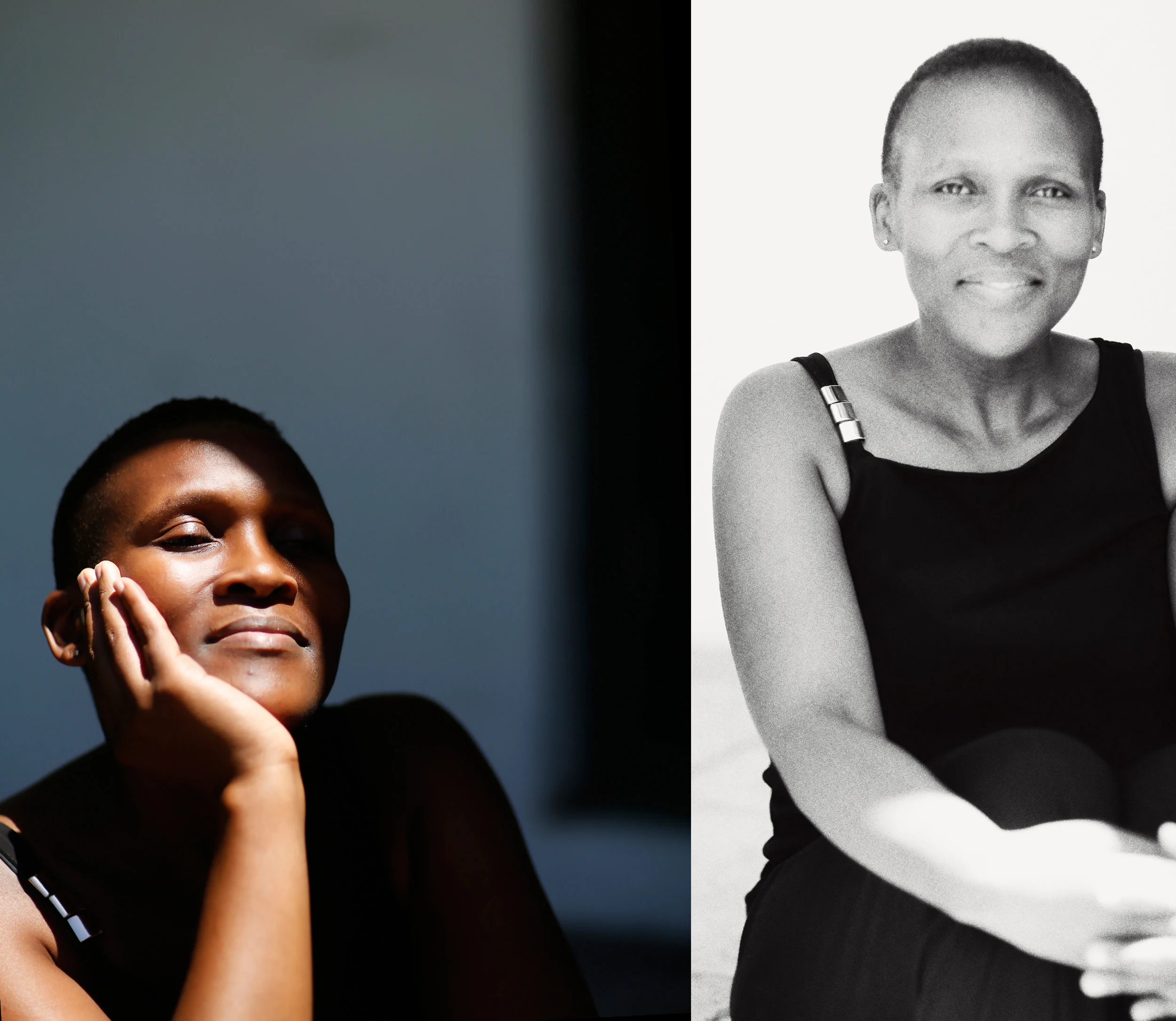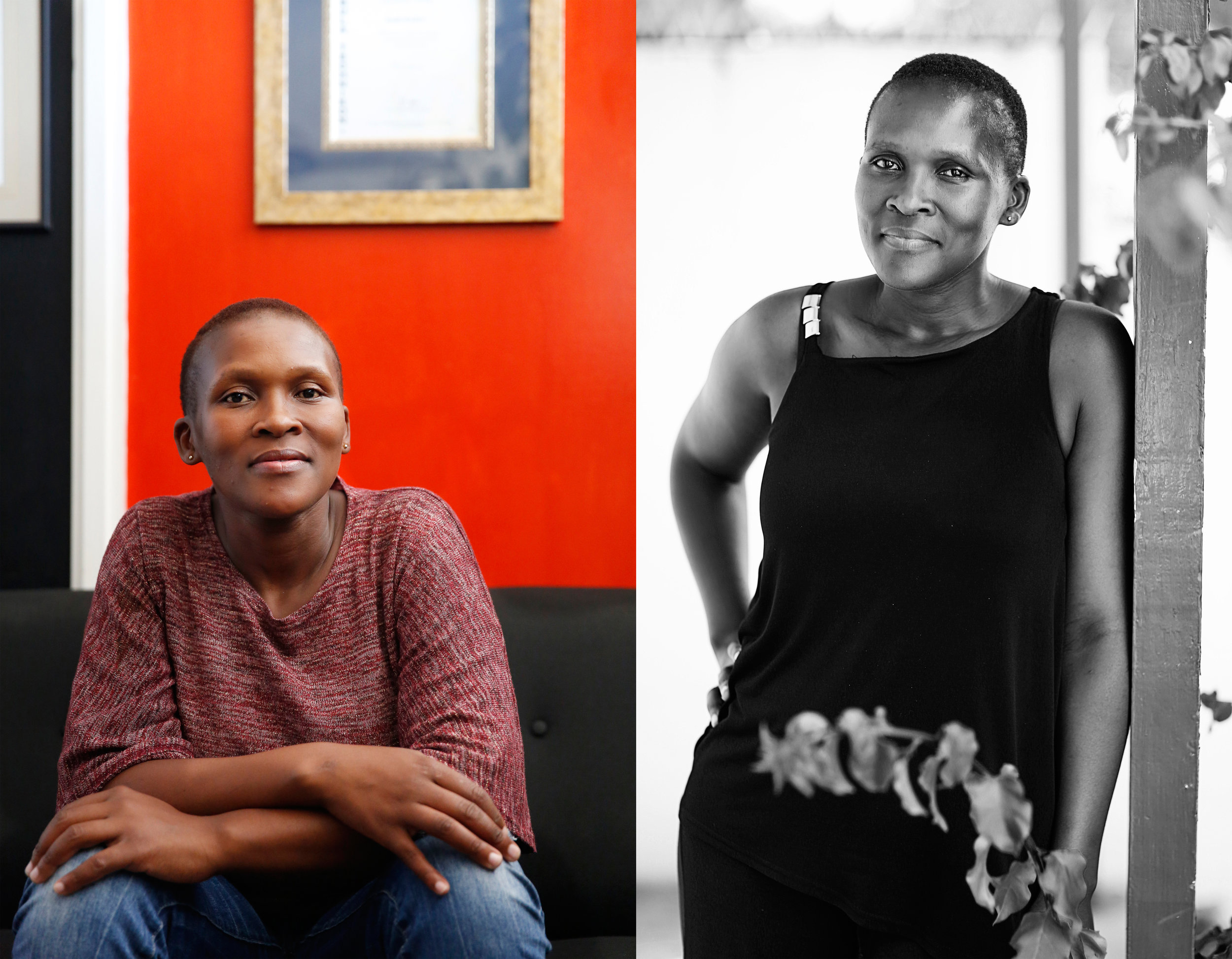Survivor, Human Rights Activist, Cape Town, South Africa
Mickey is a whirlwind of activity. Ten minutes after meeting this lady we were in a taxi rushing to the offices of a Cape Town's community radio station, where she discussed her work, efforts to influence the government of South Africa and argued for the rights of under-represented community of trafficked/prostituted women and girls. I was out of breath, but managing to keep pace. We had a productive, to the point (as the only way Mickey knows how), chat. I listened to her story, saw that elusive smile (thank you), and took in this amazing woman's point of view on first hand experiences with hardship of oppression and imbalances of power that come with what people call "commercial sex work". I further read up and educated myself on the differences between efforts to legalize prostitution in South African legislature vs. complete legalization (ex. Germany and Holland) vs. a mixture of the two termed Nordic Law (ex. Sweden, Canada, Norway, France, Ireland, Iceland) all in the hope to answer a question: Is prostitution inherently exploitative or can it be improved to maximize freedom and equality for everyone involved? The global community seems at odds as well. I understand the challenges in front of Mickey and also respect very much her efforts to help "sisters" exit a world of exploitation through workshops, training sessions and community seminars held by her organization Embrace Dignity.
1. Name.
Nomonde Mihlali Meji known as Mickey Meji.
2. Where is your hometown?
I was born and raised in Cape Town but my parents hail from the Eastern Cape's Umtata.
3. What is your profession/career/title/self-label/designation?
Advocacy Coordinator at Embrace Dignity, a South African NGO that sets out to challenge gendered power inequalities that continue to oppress women and girls through prostitution, sexual exploitation, and sexual abuse. We are committed to tackling this problem through law reform, public education and by supporting prostituted persons' exit from the industry.
4. What was the journey like to get where you are (in life and career wise)? What are some accomplishments you’re most proud of?
It was not always an easy one. I was pregnant at sixteen and on my seventeenth birthday my son was turning six months. I dropped out of school, got into prostitution and eventually worked my way up and out. Actually while I was still in prostitution, I was discovered by an organisation called Sex Workers Education Advocacy Task Force (SWEAT) which advocates for the system of prostitution and its recognition as legitimate work. I was there for a few years before I realised that I wanted to challenge the system of prostitution and abolish it. I later joined the team at Embrace Dignity, and advocate for abolishing the term "sex work" and recognizing the industry as exploitative and oppressive.
On a personal note, I have overcome a lot. I suffered heartbreaks as well as abusive relationships, but right now I am in a good space in both career as well as my relationship. I am happy but of course there is always room for growth. I am with a loving man who respects and values my input and my career is going in the right direction. The legislature for which we are fighting could pass, as South Africa is on the brink of passing a law dealing with prostitution, and I am strongly advocating it to mimic Nordic Law (as seen in countries like Norway, Sweden, Canada and Iceland).
Here is an excerpt from my letter to the Sough African congress entitled "ANC 54th Congress Resolution to fully decriminalize prostitution and recognize it as work fails black, poor and disadvantaged!"
"As a black young South African woman who has always been disadvantaged, I was deeply disturbed to hear in the news in December that the 54th ANC Conference held at Nasrec adopted a resolution to support the full decriminalization of prostitution and its recognition as “work”. By so doing, you have sent a clear message not only to us your daughters but the whole world how you would like us and our children, your grandchildren to remember you.
Women in prostitution do not wake up one day and “choose” to be prostituted. Prostitution is chosen for them by our colonial past and apartheid, persistent inequalities, poverty, past sexual and physical abuse, the pimps who take advantage of our vulnerabilities and the men who buy us in prostitution. Most women are drawn into prostitution at a young age, some as young as 13 years old. Women and girls in prostitution have almost no resources to help them exit the sex trade. There is currently no government support for pyscho-social services or economic empowerment programs to provide alternatives for women and girls in prostitution and those who are at risk of entering this very harmful exploitative “industry”.
There is strong evidence that points to the fact that women and girls in prostitution suffer gross human rights violations at the hands of those who buy them for sex, those who sell and exploit them for their financial benefit (pimps and brothel owners) and the police. Yes, I agree that the violence is perpetuated by the fact these women are criminalized and therefore receive no protection from the law. They fear re-victimization by the criminal justice system. I agree they those who sell sex should be decriminalized but there is no basis to decriminalize those who buy sex and those who sell women and girls (pimps and brothel owners). They must remain criminalized. They should not be given a license to exploit a position of vulnerability caused by gender inequality, unemployment and poverty.
Women in prostitution dream of a life free from oppression, patriarchy, and economic inequalities. A life where they have access to a wider array of dignified and decent employment options, where they can participate as citizens and not a “key population”, living on the margins of society."
5. What did you study in school?
In college I studied Journalism and Media studies. I am actively trying to get myself into varsity for Gender Studies.
6. How is your life different from what you pictured at 20?
At twenty given my background and circumstances I definitely did not see myself where I am right now. As an example, I never in my life thought that I would be able to drive let alone own a car.
7. What was your biggest disappointment and plan to overcome it?
My biggest disappointment came when my son refused to finish school. I had come to terms with it and have decided to support him in whatever venture he wants to follow.
8. Advice for other women?
Never underestimate yourself, never allow being a woman stop you from doing what you want to be, and lastly understand that you are equally important as men in this world otherwise God would have never created you. For the young women I advise you to wait for as long as you can to finally choose "the one" (study, learn, and find your true self first).
9. Knowing what we know now in current political climate, can women be "all that we can be" in today's world? What is the way forward, as you see it for "feminist values"?
(laughs) I was having a conversation yesterday afternoon with a group of women about how patriarchy is still rife and insidious. But yes, through continuing to fight for our rights we can certainly be all that we can.
10. Where in the world do you feel “tallest” (i.e. where is your happy place)?
My bedroom, on my bed.
11. What extra-curricular activities/hobbies are you most proud of? Why?
Reading, because it is empowering; Praying, because it strengthens my relationship with God.
12. What do you want to be when you grow up? Future goals/challenges?
I want to study until I get my doctorate. After this revolution I have another one to tackle, child-rearing.
13. What fears are you still hoping to overcome?
The fear of being a woman in my country (South Africa). Even after 2+ decades of democracy women in this country are still entrapped, having to face many risks of violence.
14. Anything you'd do differently if you had another go at life?
I would wait for Ronny (my fiancé) to have his children.
15. What inspires you?
Great women who overcome it all.
16. What are you hopeful about?
That South African government wise up and put the lives of women and girls as a priority through enactment of the Equality Law.
17. What are some ingredients to a good life?
Perseverance, patience, respect, eagerness to learn, hard work, responsibility and learning from mistakes by treating them not as a failure, but learning experiences.
18. What advice would you give your 14-year-old self?
Do not listen to boys lying their into your pants and focus on your studies.
19. What are you reading now? (what books do you gift most and what are your favourite reads?)
I am currently reading "No Longer Whispering to Power: The Story of Thuli Madonsela" by Thandeka Gqubule; "Faithing It: Bringing Purpose Back to Your Life" by Cora Jakes-Coleman, the South African Constitution and the Holy Bible.
20. Who is a WOW Woman in your world who inspires you and why? Can you nominate three women you know who perfectly fit WOW WOMAN description?
- Advocate/ Professor Thuli Madonsela the former public protector of the Republic of South Africa. For her struggles for democracy and continued work to ensure that justice is served. And above all, for her passion for justice, equality and freedom.
- Nozizwe Madlala-Routledge for her views on life, the work she has done, her activism, but above all her bravery in starting a conversation no one wants to touch with a ten foot pole. Not only does Nozizwe speak up, she challenges status quo publicly. I admire her courage.
- Akuol De Mabior. Although she is younger than I am and came from a home where she could have taken advantages of full financial comforts, she yearned for independence and achieved so many things on her own. She is a woman of many talents, and as an example, recently made a lip balm. I am very proud of her.
21. Where can others find you/your work (links to websites, blogs, etc.)?
www.smonza.wordpress.com and www.embracedignity.org.za

